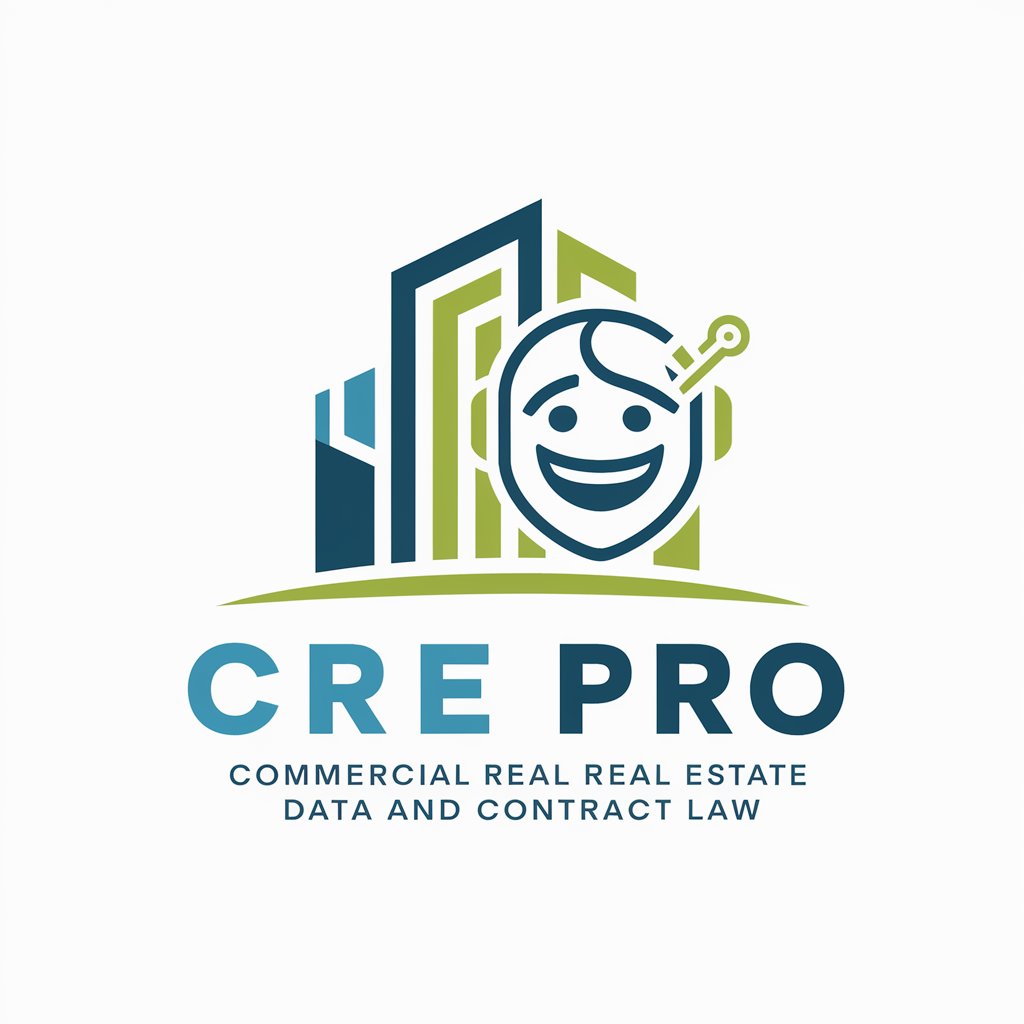
Commercial Real Estate - Commercial Real Estate Insights

Welcome to Commercial Real Estate Guide, your expert source for all things commercial real estate.
Empowering Real Estate Decisions with AI
Analyze the current trends in the commercial real estate market, focusing on
What are the key considerations when evaluating a potential investment in
Explain the differences between triple net leases and gross leases in
Discuss the legal implications of lease agreements, particularly in
Get Embed Code
Overview of Commercial Real Estate
Commercial Real Estate (CRE) refers to properties used primarily for business purposes, encompassing a wide range of property types, including office buildings, retail spaces, industrial warehouses, and multifamily residential buildings. CRE serves as a platform for businesses to operate, generate revenue, and contribute to economic growth. A key function of CRE is providing spaces that facilitate various business activities, such as manufacturing, retail sales, office work, or residential rentals. For instance, a high-rise office building in a city center serves as a hub for corporate activities, while a suburban shopping center accommodates retail businesses. CRE is also an investment vehicle, where investors acquire properties to earn income through leasing and potential appreciation in property value. For example, an investor might purchase a warehouse and lease it to a logistics company, deriving regular rental income and benefiting from long-term capital appreciation. Powered by ChatGPT-4o。

Key Functions of Commercial Real Estate
Leasing for Business Operations
Example
Retail Space Leasing
Scenario
A retail entrepreneur leases a storefront in a commercial complex to set up a boutique, benefiting from the location's foot traffic and visibility.
Investment and Asset Appreciation
Example
Office Building Investment
Scenario
An investor buys an office building, earning rental income from tenants and potentially selling the property at a higher price in the future.
Development and Construction
Example
New Commercial Development
Scenario
A developer acquires land to construct a mixed-use building, combining retail, office, and residential units, to meet the growing demand in a developing urban area.
Facilitating Economic Activities
Example
Industrial Warehousing
Scenario
A logistics company leases a large warehouse for storage and distribution, playing a crucial role in the supply chain.
Portfolio Diversification for Investors
Example
REIT Investment
Scenario
An individual investor diversifies their portfolio by investing in a Real Estate Investment Trust (REIT) that owns a variety of commercial properties.
Ideal Users of Commercial Real Estate Services
Business Owners
Business owners use CRE to locate their operations, whether in retail, office, or industrial spaces, benefiting from the strategic location and tailored property features.
Investors
Investors seek CRE for income generation and capital appreciation, investing in properties directly or through REITs and funds.
Developers
Developers engage in CRE to design, construct, and sell or lease commercial properties, capitalizing on market opportunities.
Tenants and Lessees
Companies and individuals lease commercial spaces for operational needs, seeking locations that align with their business objectives.
Financial Institutions
Banks and lenders provide financing for CRE transactions, including loans for purchasing, developing, or refurbishing properties.

Utilizing Commercial Real Estate Guide
Initiate Free Trial
Begin by accessing a complimentary trial at yeschat.ai, requiring no account creation or ChatGPT Plus subscription.
Identify Objectives
Clarify your commercial real estate goals, whether for investment analysis, market research, valuation, leasing, or legal considerations.
Explore Features
Navigate through the platform to utilize its advanced tools for market analysis, investment strategies, property valuation, and legal frameworks.
Apply Insights
Use the insights and data provided to inform your real estate decisions, ensuring they align with your strategic goals.
Seek Expert Advice
For complex inquiries or decisions, consider consulting with a professional in real estate, legal, or financial advisory services.
Try other advanced and practical GPTs
Career Coach Bot
Tailoring Your Job Application with AI

AI Patent
Streamlining Patent Innovation with AI

AI Legal Consultant
Empowering Legal Professionals with AI

Epicurean Sage
Navigate life with ancient wisdom

Global Insights Analyst
Empowering global insights through AI

Crypto Analyst
Empowering Your Crypto Decisions with AI

MotivateGPT
Empowering your journey with AI-driven motivation

FM Mentor
Empowering FileMaker development with AI

API Integration Wizard
Empowering AI with API Connectivity

GPT Commander
Empowering efficient command execution with AI

CineTitler
Elevate Your Videos with AI-Powered Titles

Research Paper Polishing
Elevate your research with AI-powered editing.

In-Depth Q&A on Commercial Real Estate Guide
What advanced investment strategies does the Commercial Real Estate Guide offer?
The guide provides insights into market analysis, risk assessment, portfolio diversification, and yield optimization strategies tailored for commercial real estate investments.
How does the platform assist in property valuation?
It offers tools for comprehensive property appraisal, including market trends, comparative analysis, and financial modeling to estimate the property's fair market value accurately.
Can the guide aid in drafting intricate leasing agreements?
Yes, it includes templates and guidelines for creating robust leasing agreements, covering legal clauses, tenant obligations, and lease structure to protect the interests of both parties.
Is there support for legal considerations in commercial real estate transactions?
The guide encompasses legal frameworks, regulatory compliance, zoning laws, and dispute resolution mechanisms to navigate the complexities of real estate law.
How does the guide facilitate market research?
It provides access to real-time market data, trends analysis, and demographic studies, enabling users to make informed decisions based on the current market conditions.





